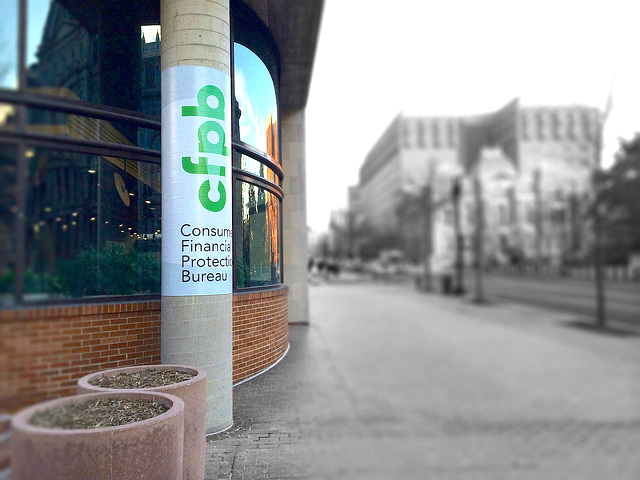
Consumer Financial Protection Bureau Director Richard Cordray touted existing alternatives to payday lending on Thursday, as the agency released long-anticipated rules to curtail abusive loansharking.
Cordray described the so-called “small-dollar” credit market as fundamentally broken, and said he hoped the proposed regulations would push the financial industry toward less predatory practices.
“We are not intending to disrupt existing lending by community banks and credit unions that have found efficient and effective ways to make small-dollar loans to consumers that do not lead to debt traps or high rates of failure,” he said. “We want to encourage other lenders to follow their model.”
Cordray made the remarks at an unveiling of the rules in Kansas City, Mo.
The rules, which had been preceded by years of Congressionally-mandated agency studies, would prohibit payday lenders from issuing certain types of shot-term credit without conducting any prior checks on a borrower’s ability to repay.
Loans that require borrowers to put up their car as collateral would be barred, for example, if the lender did not first conduct due diligence. A study released last month by the CFPB found that 20 percent of so-called “auto title” borrowers end up losing their car.
Lenders would not, however, need to means-test a borrower if they adhere to National Credit Union Administration standards on payday alternatives. The federal credit union regulator allows “payday alternative loans” with interest rates capped at 28 percent and application fees limited to $20.
“This option would be available to all lenders on the same basis and not just to federal credit unions,” Cordray noted.
The new regulations would also limit lenders’ ability to “roll over” debt — a practice that sees borrowers mired in a cycle of debt that often lasts months.
“More than half of all payday loans are made to borrowers in loan sequences of ten loans or more,” Cordray said. “For borrowers who are paid weekly or bi-weekly, one-fifth of these loans are in sequences of 20 loans or more.”
He also said the industry “depend[s] on a substantial percentage of borrowers being unable to repay the loan and borrowing again and again at high interest rates.”
The CFPB says that a typical payday loan interest rate is about 390 percent. High interest short-term loans are currently allowed in 36 states, where there are 16,000 payday lending outlets.
Lawmakers from Florida are currently trying to legislate a loophole to CFPB payday lending rules, if a state adopts a regulatory regime similar to the one that exists in Florida. It allows lenders to charge interest rates in excess of 300 percent.
Though Republicans have led the charge, it has been heartily backed by Democrats that receive substantial support from the industry, including Reps. Debbie Wasserman-Schultz (D-Fla.), Alcee Hastings (D-Fla.), and Patrick Murphy (D-Fla.).
Liberal defenders of payday lenders have claimed the rule will effectively kill an industry that tailors to the poor. Wasserman-Schultz office said in March that Florida’s regulatory regime is “preserving access to credit in underserved communities.”
In response to efforts, one non-profit highlighted campaign donations to Wasserman-Schultz from payday lenders, and nicknamed her “Debt Trap Debbie.”
Sen. Elizabeth Warren (D-Mass.), one of the most prominent CFPB advocates, celebrated Thursday’s announcement by hitting out on Twitter at payday lender allies in both parties.
“Payday lending is a $7B/yr industry. That buys a lot of influence in Congress — not just with the GOP, but also some Democrats,” she said.
Media that fights fascism
Truthout is funded almost entirely by readers — that’s why we can speak truth to power and cut against the mainstream narrative. But independent journalists at Truthout face mounting political repression under Trump.
We rely on your support to survive McCarthyist censorship. Please make a tax-deductible one-time or monthly donation.